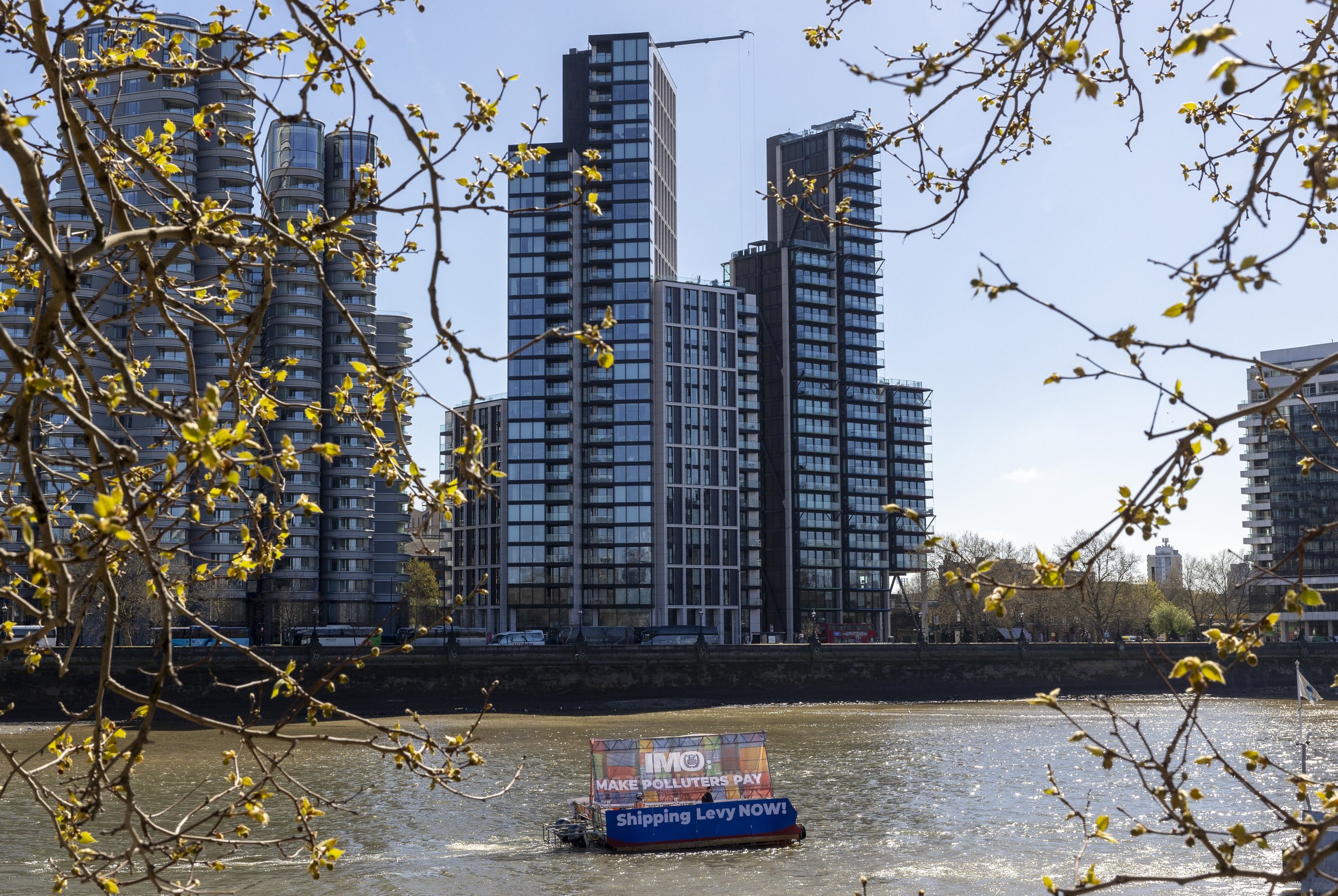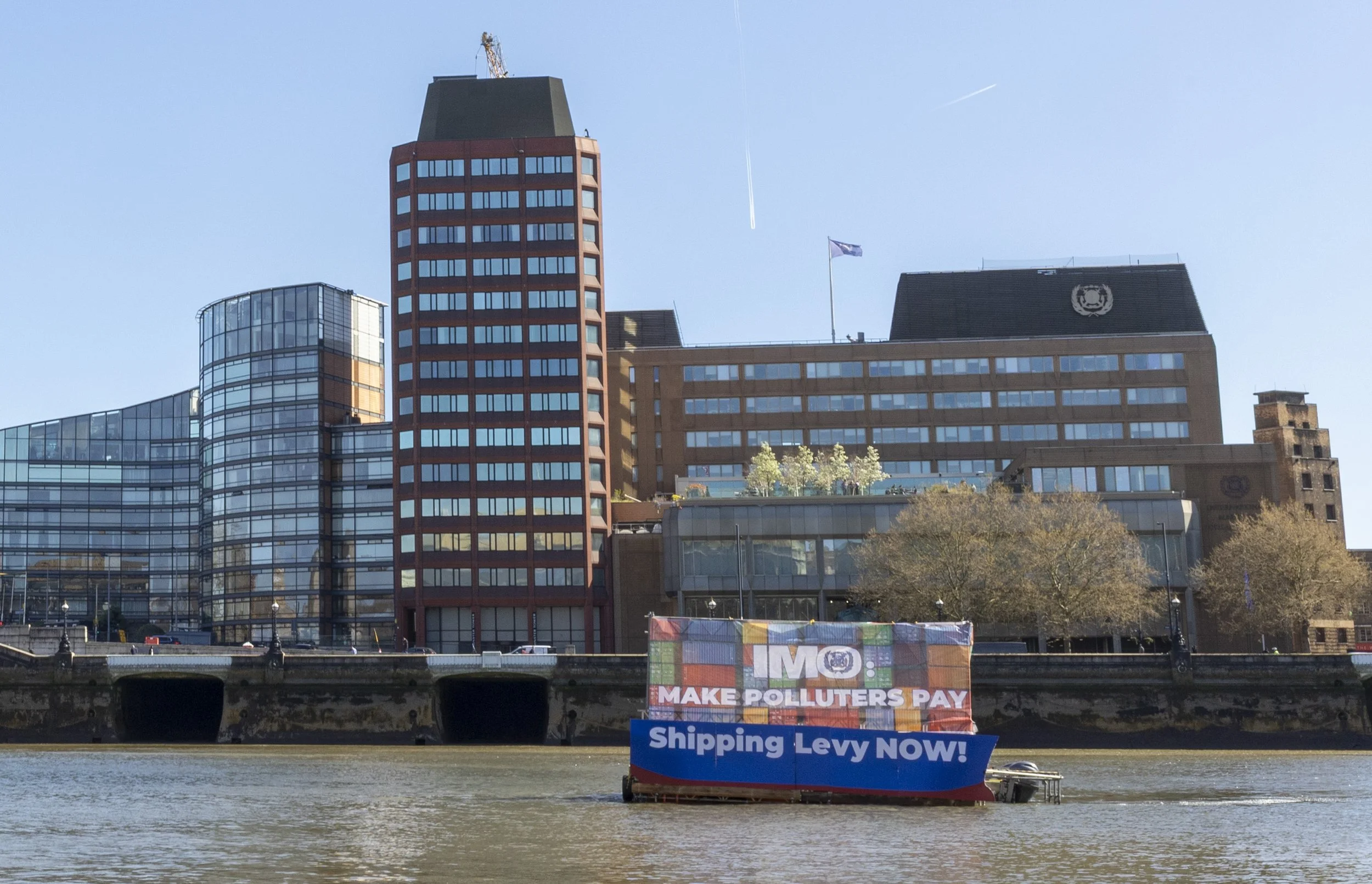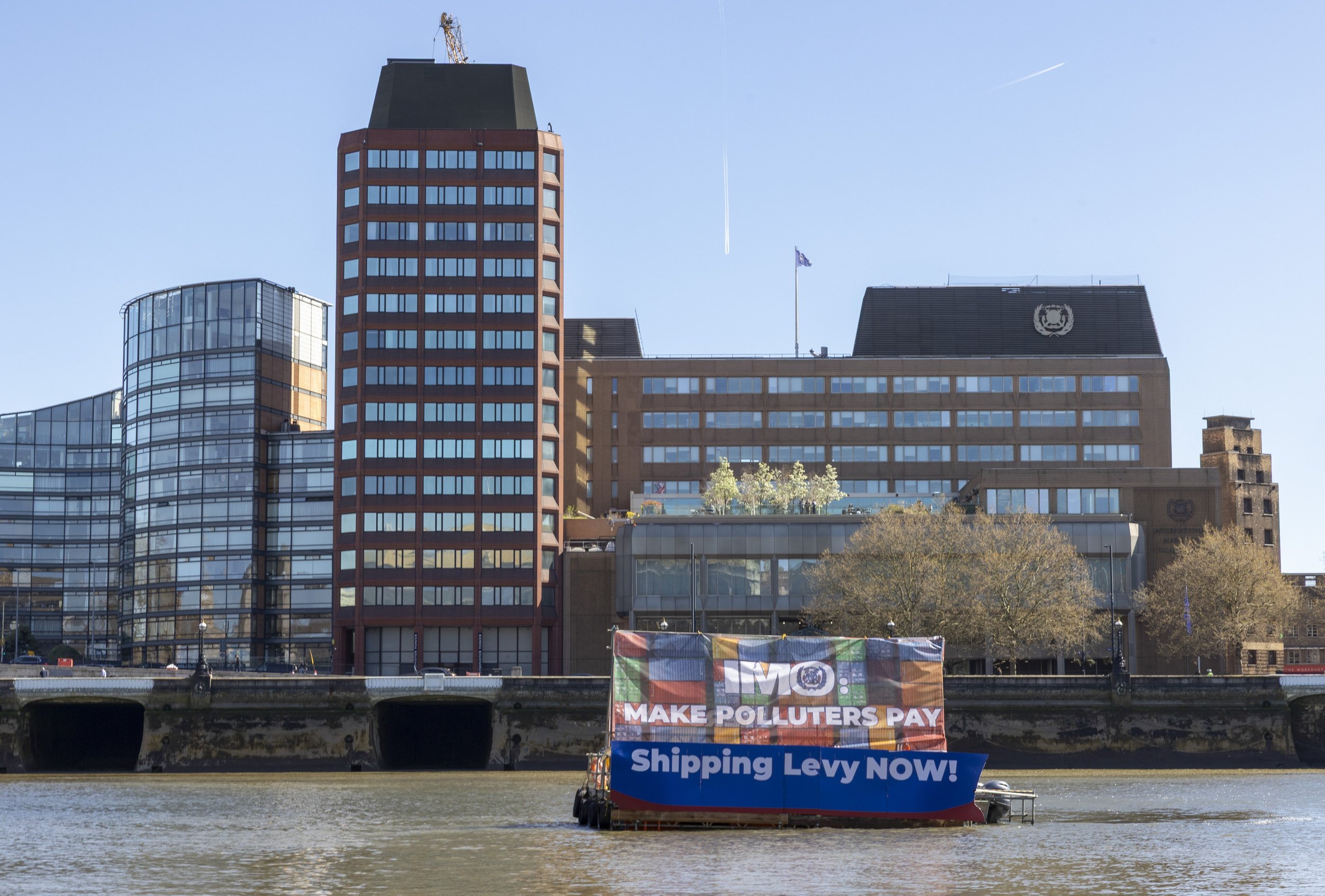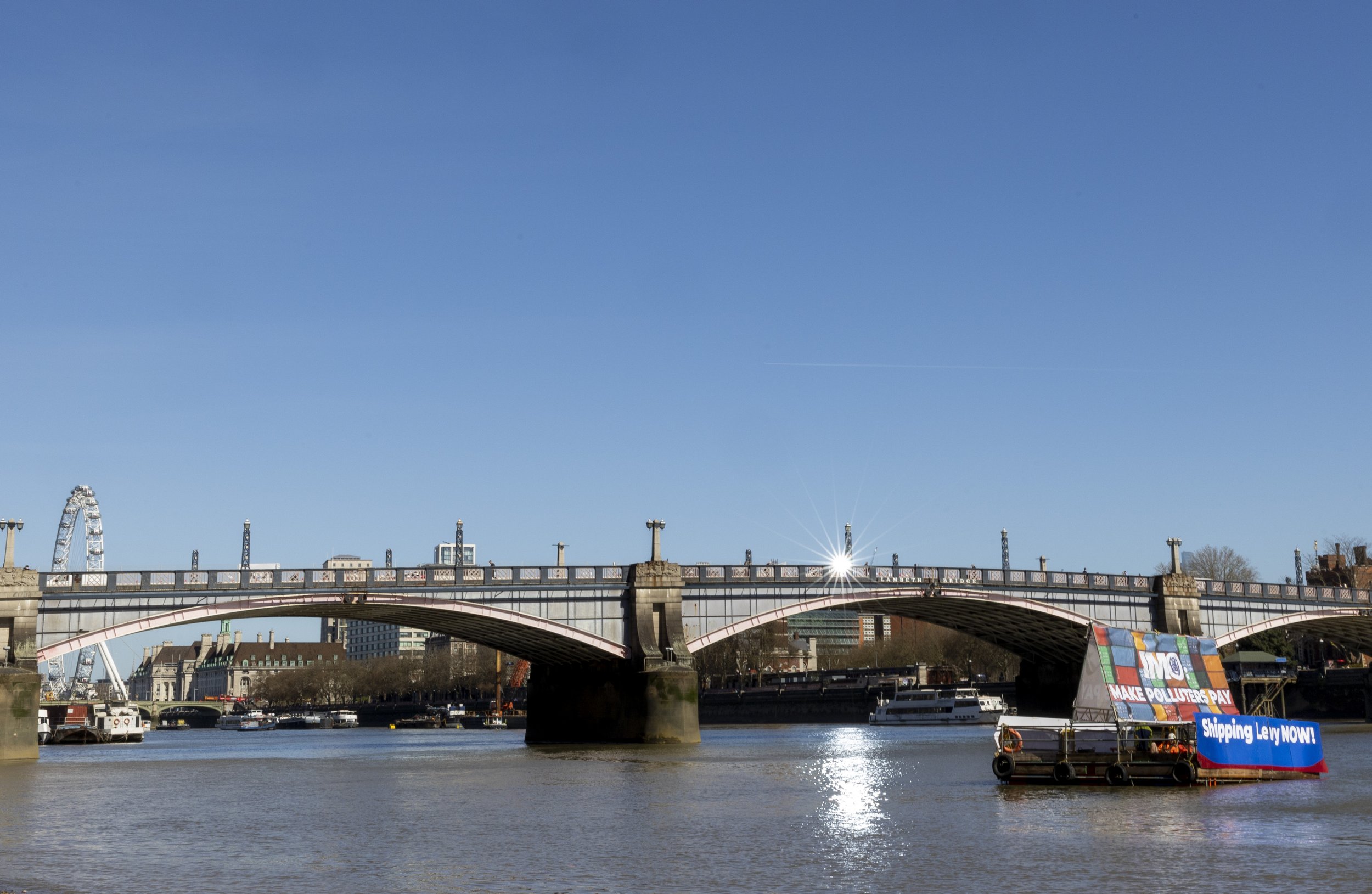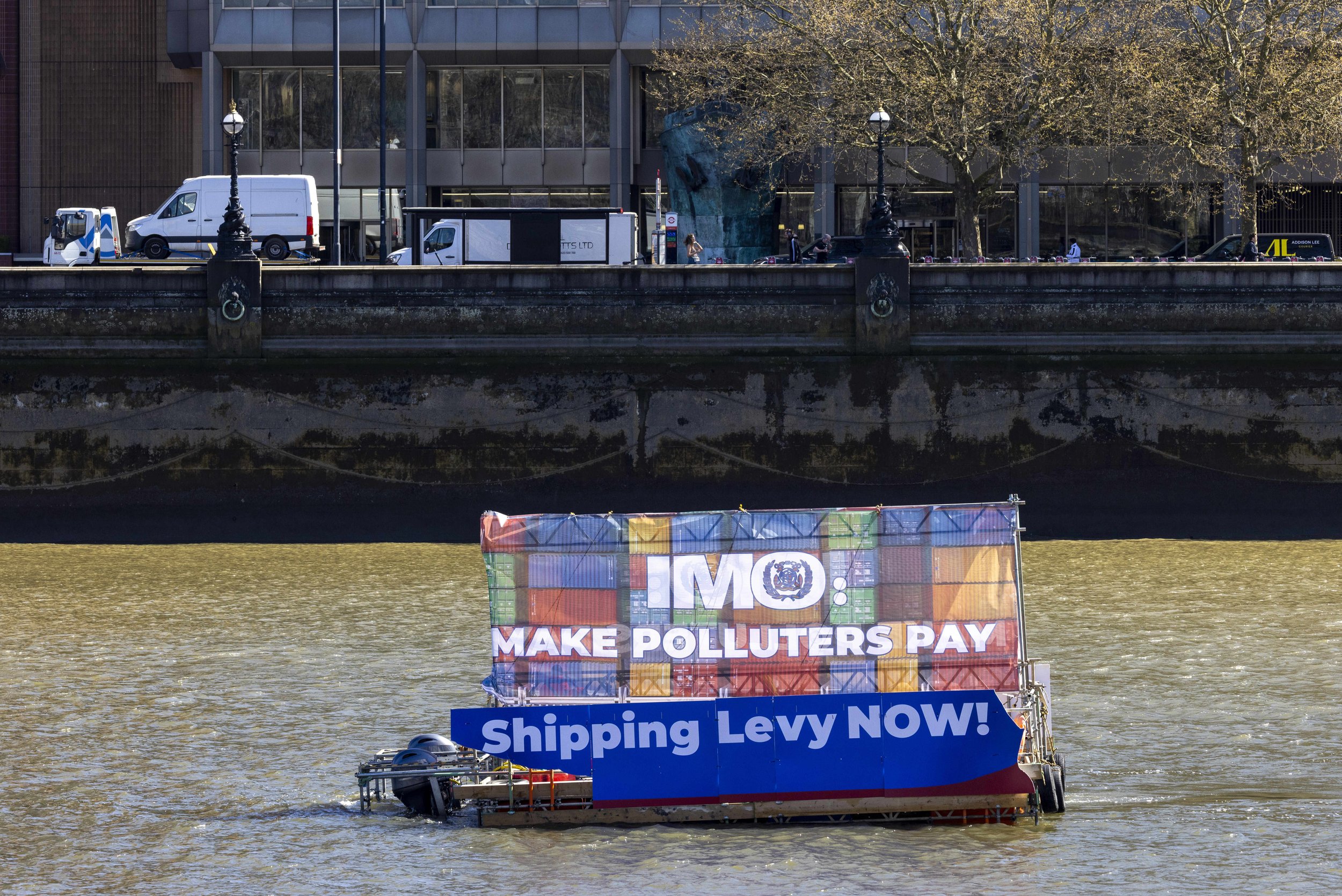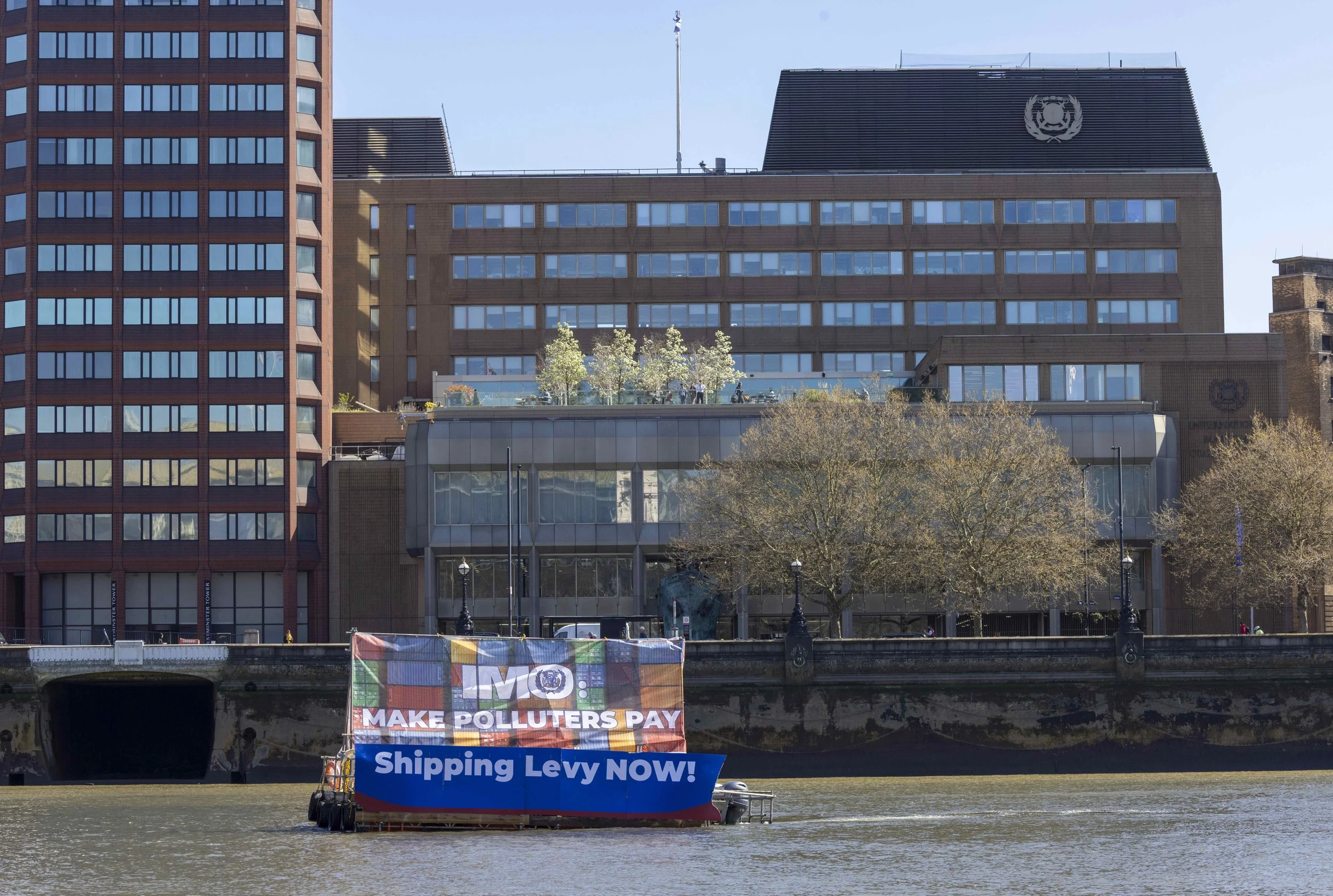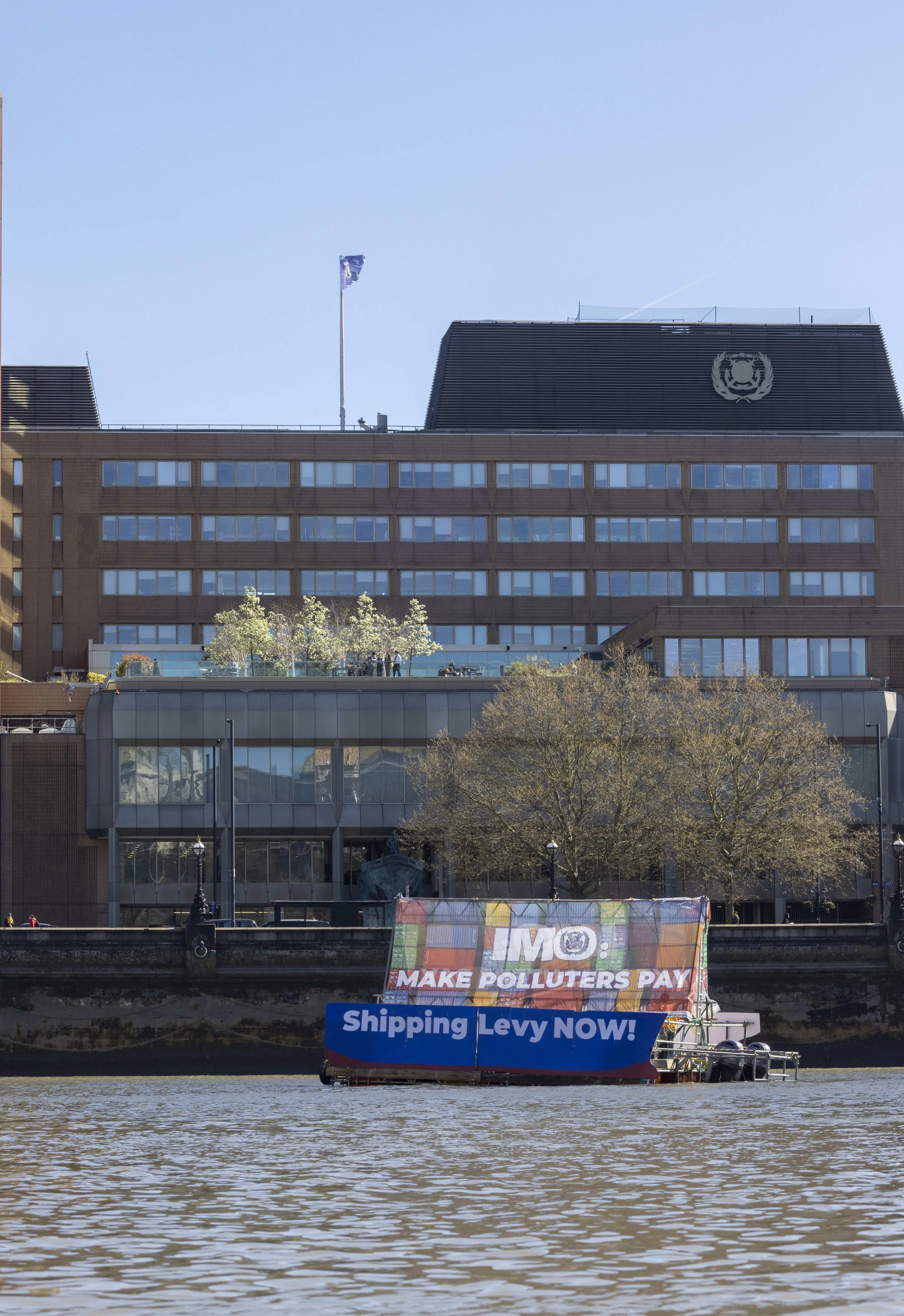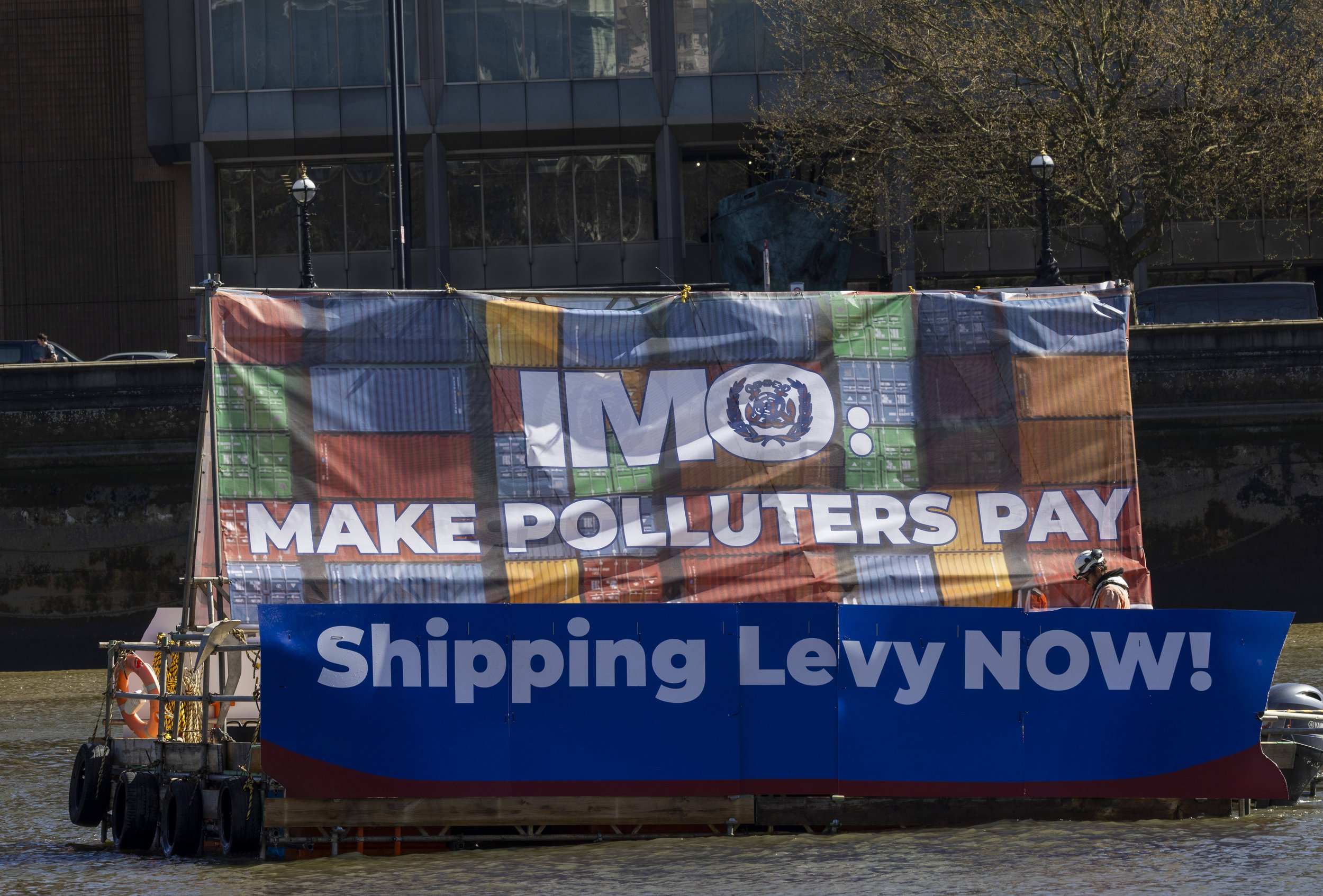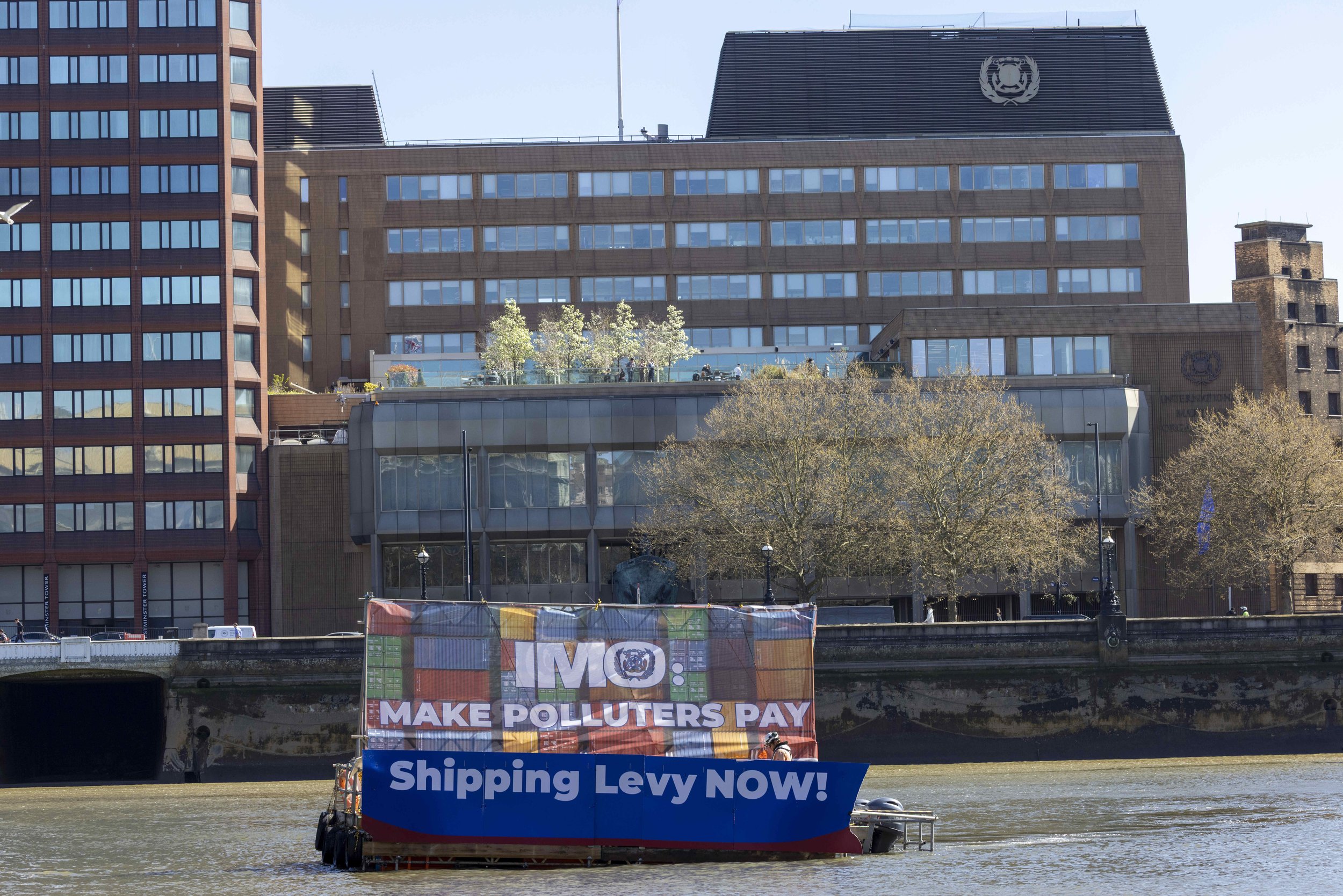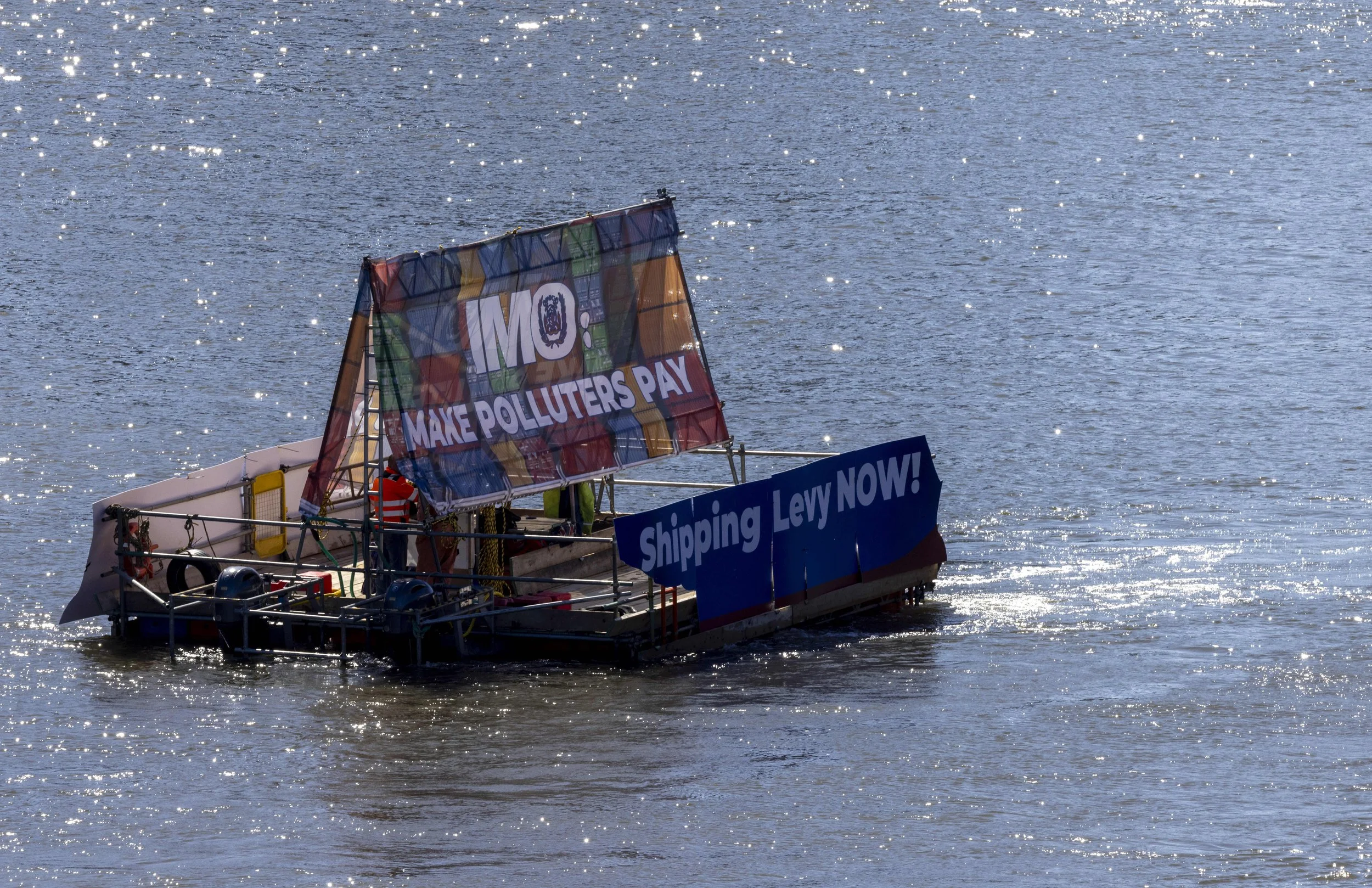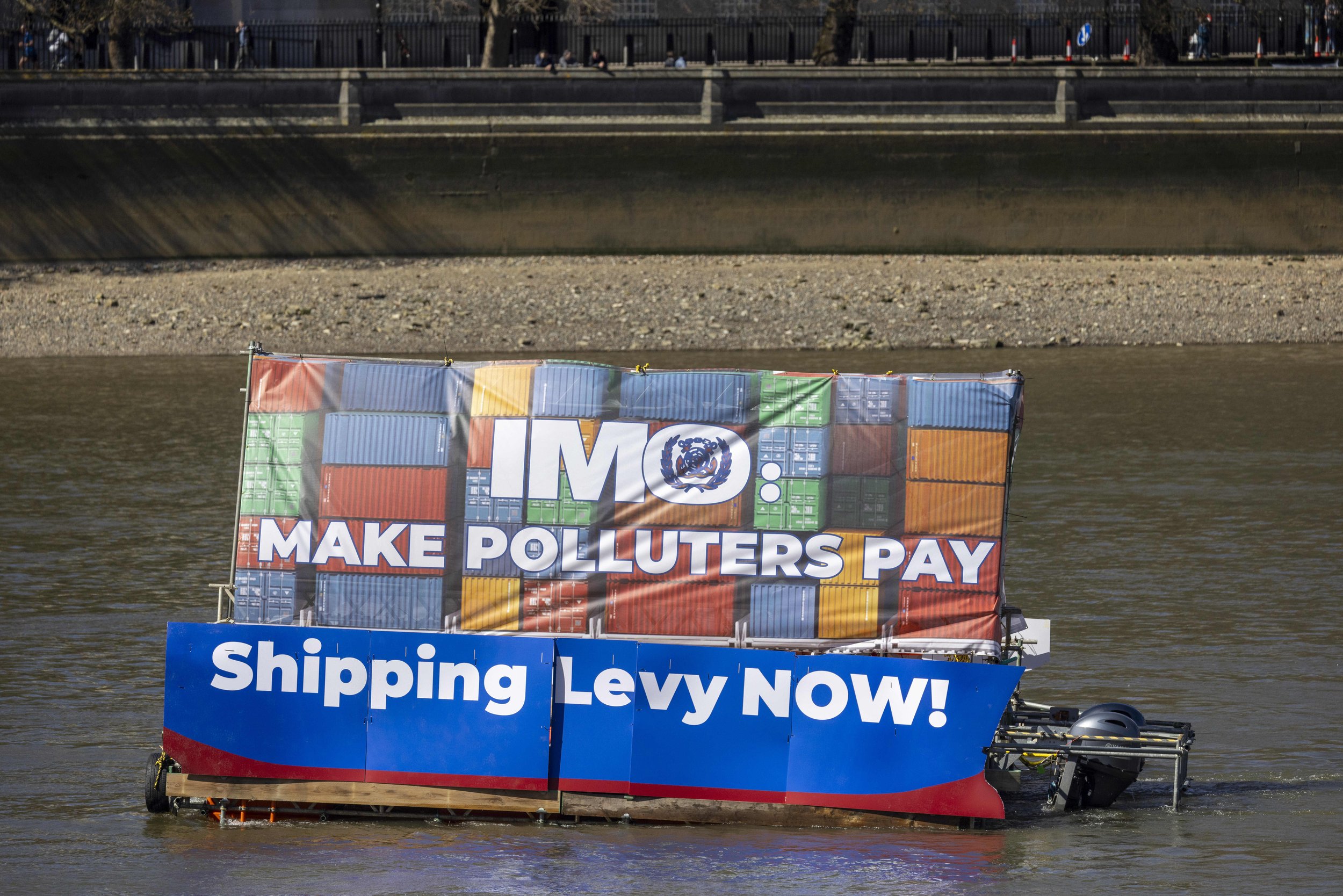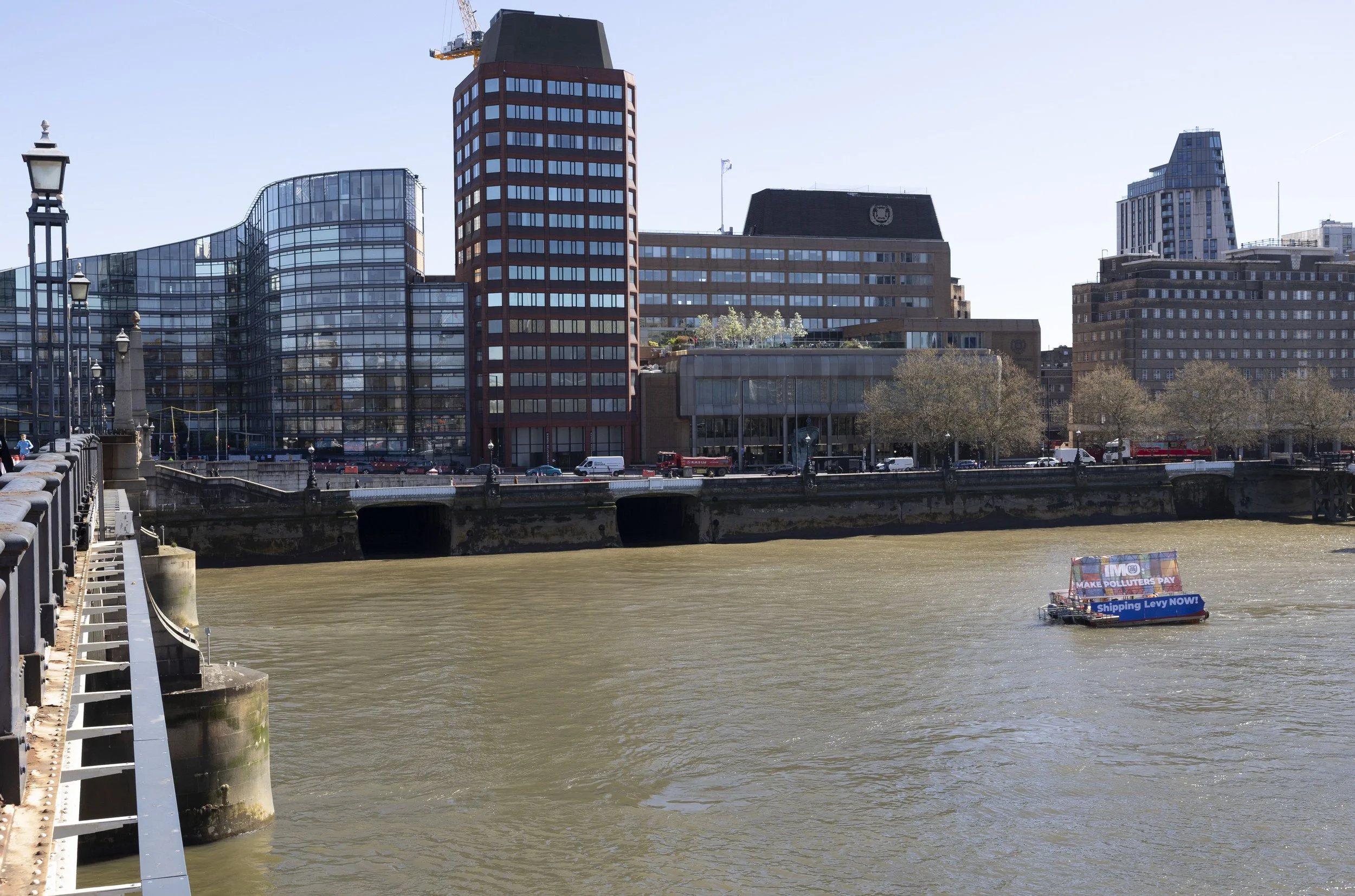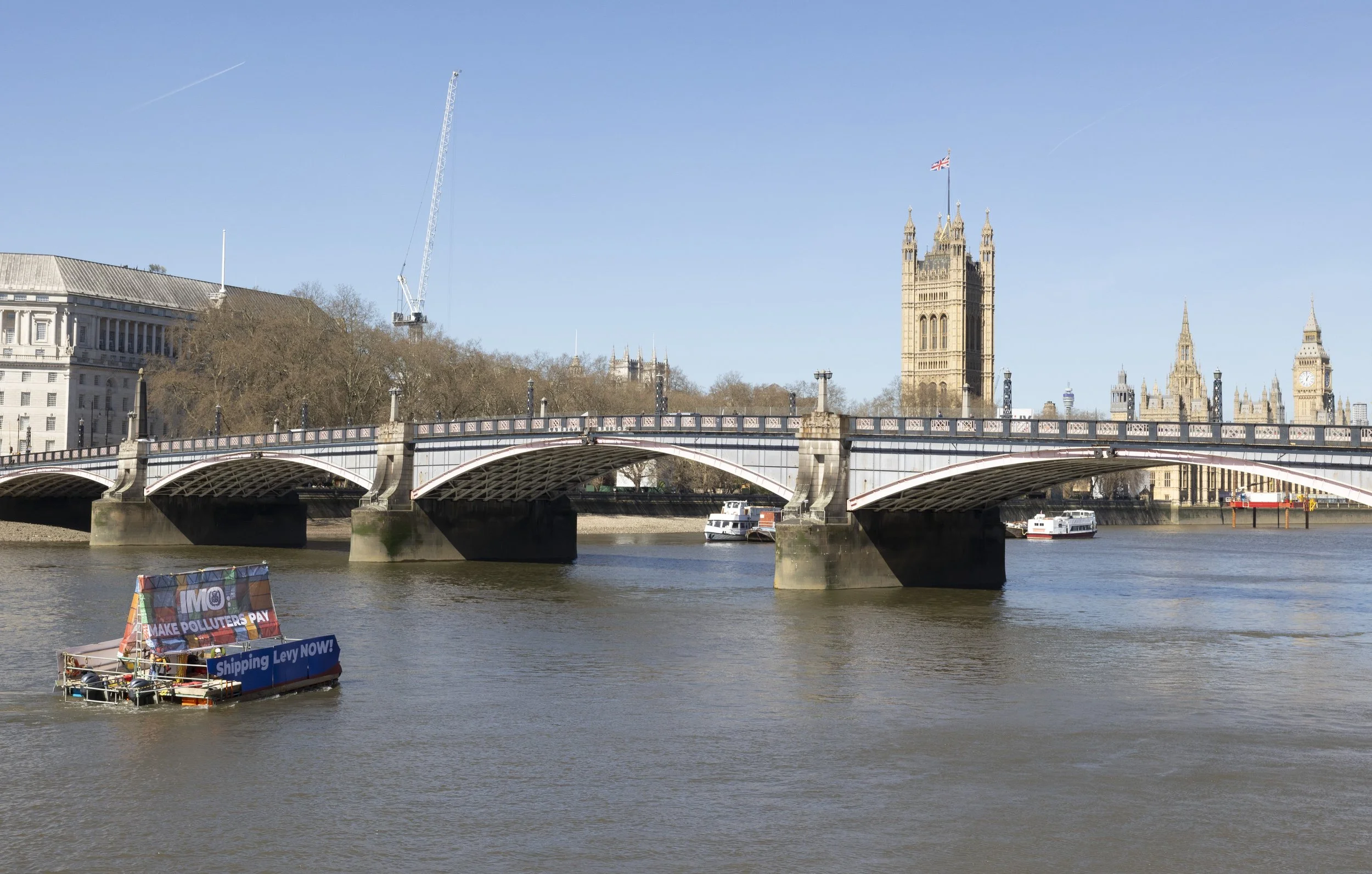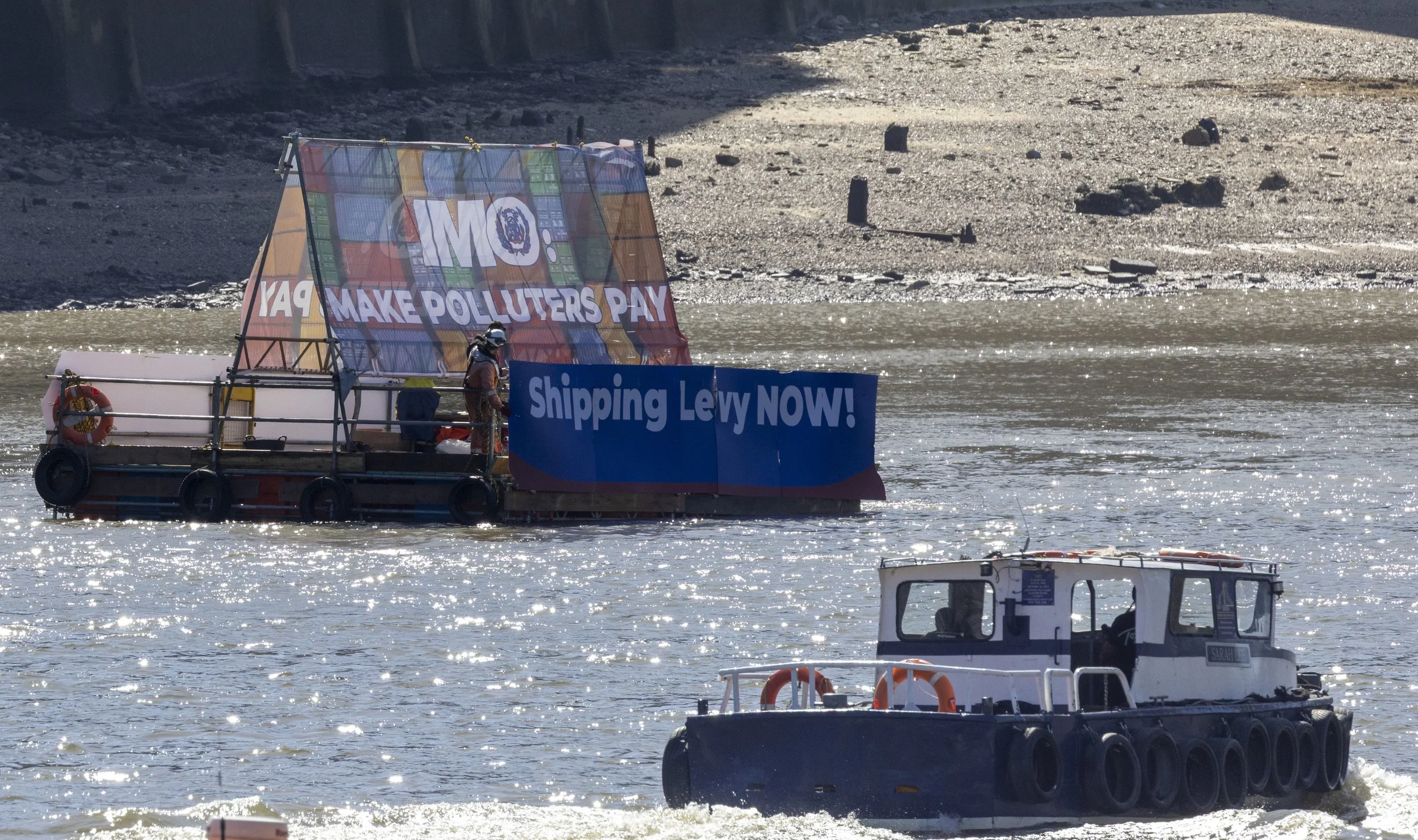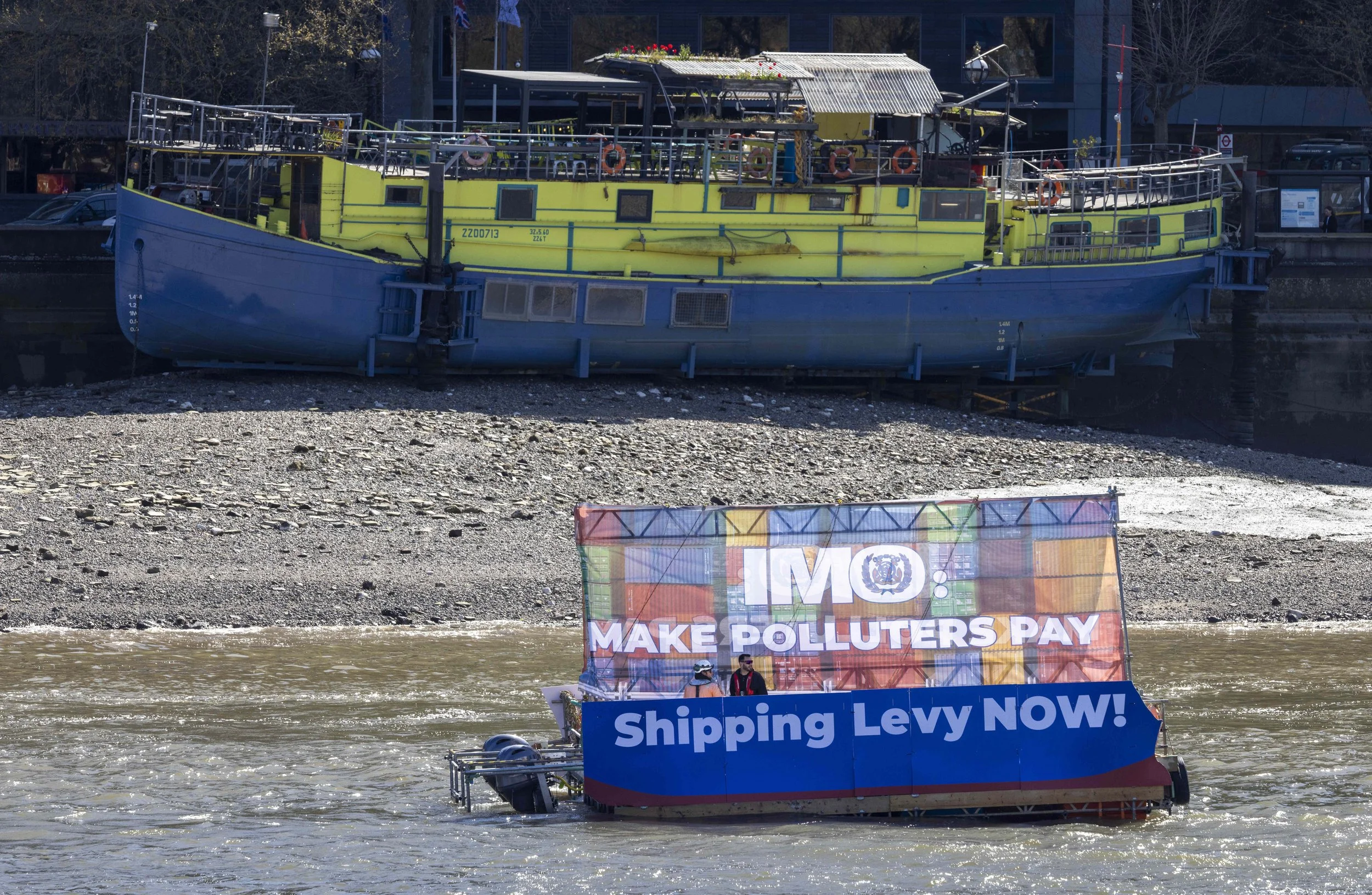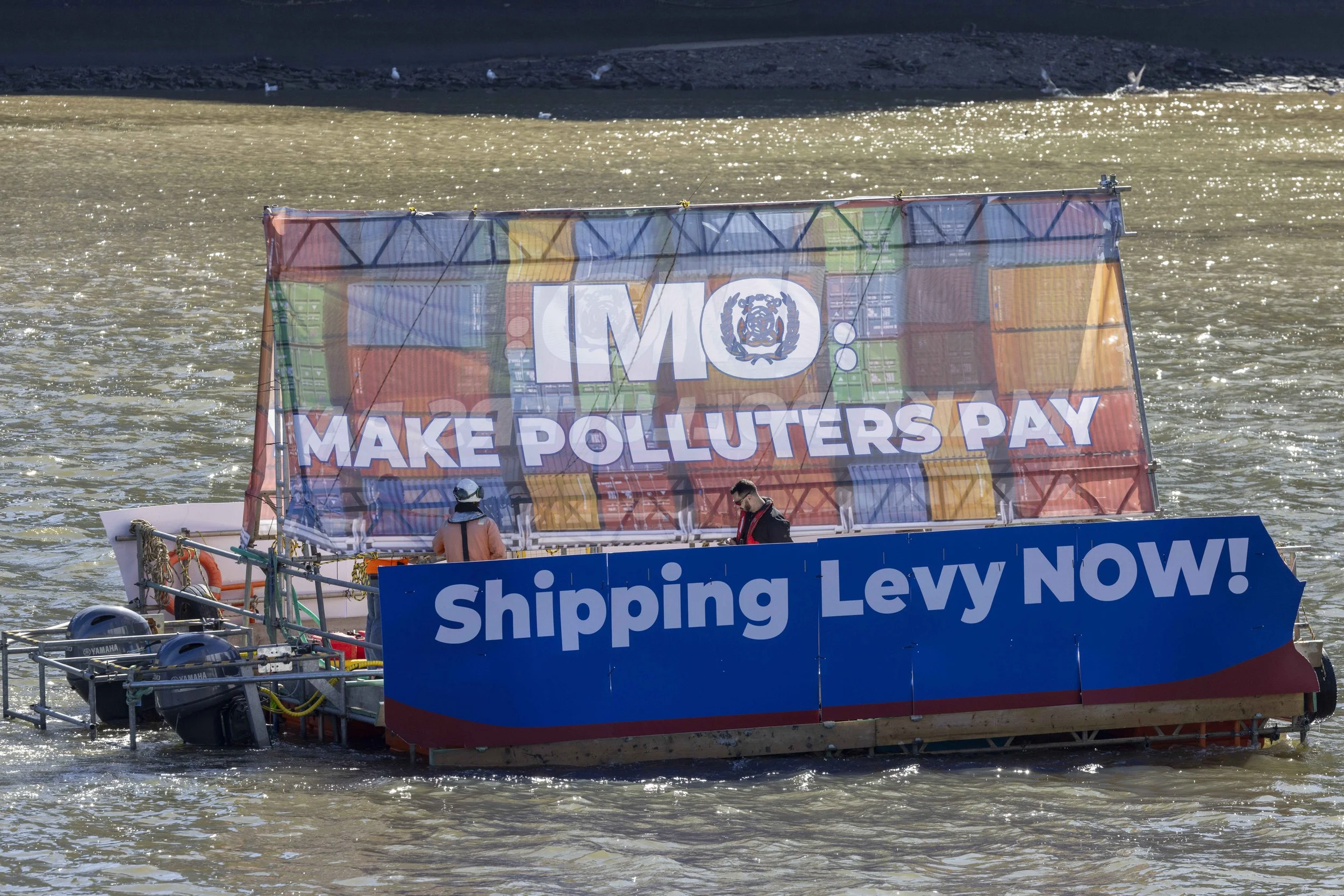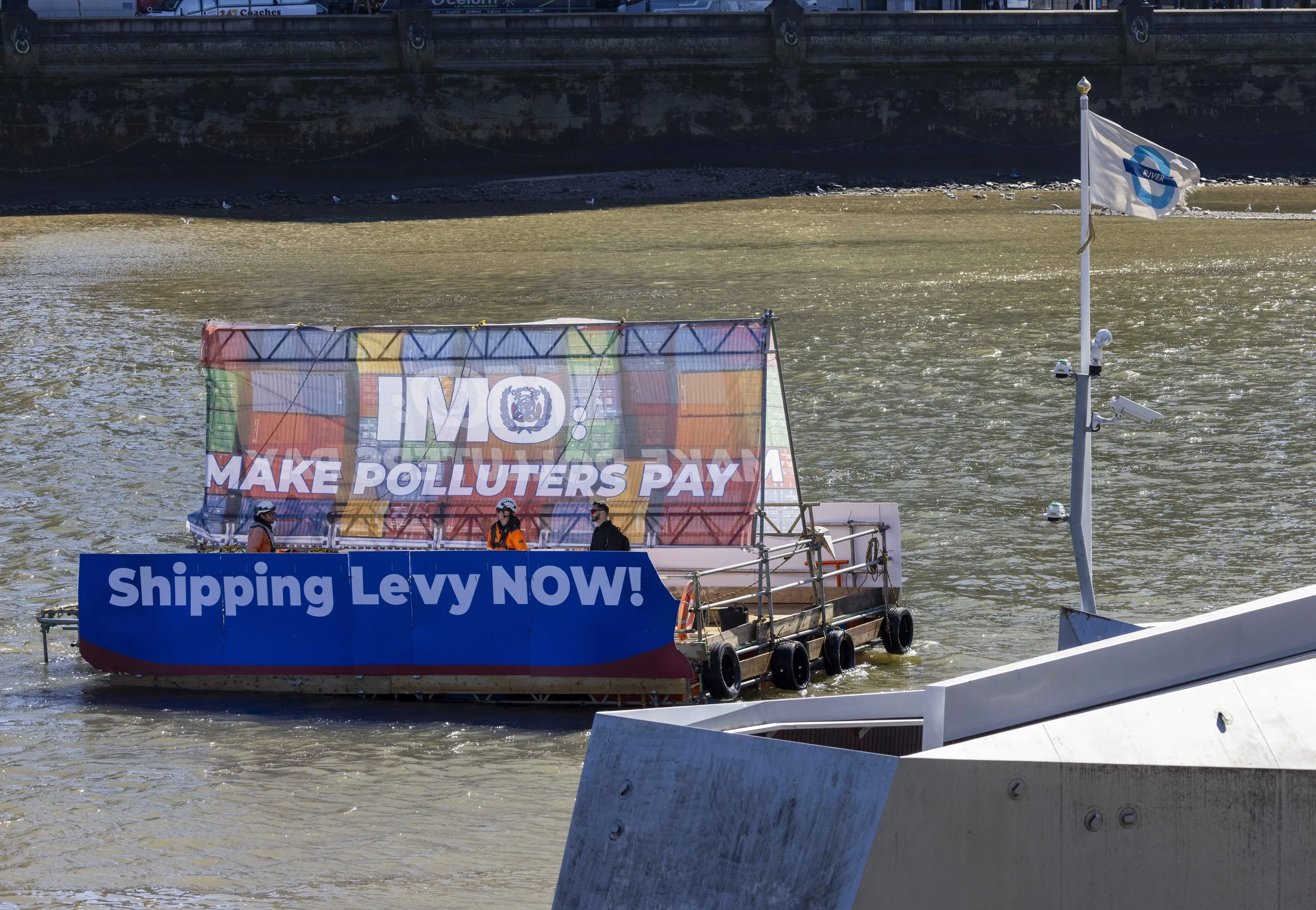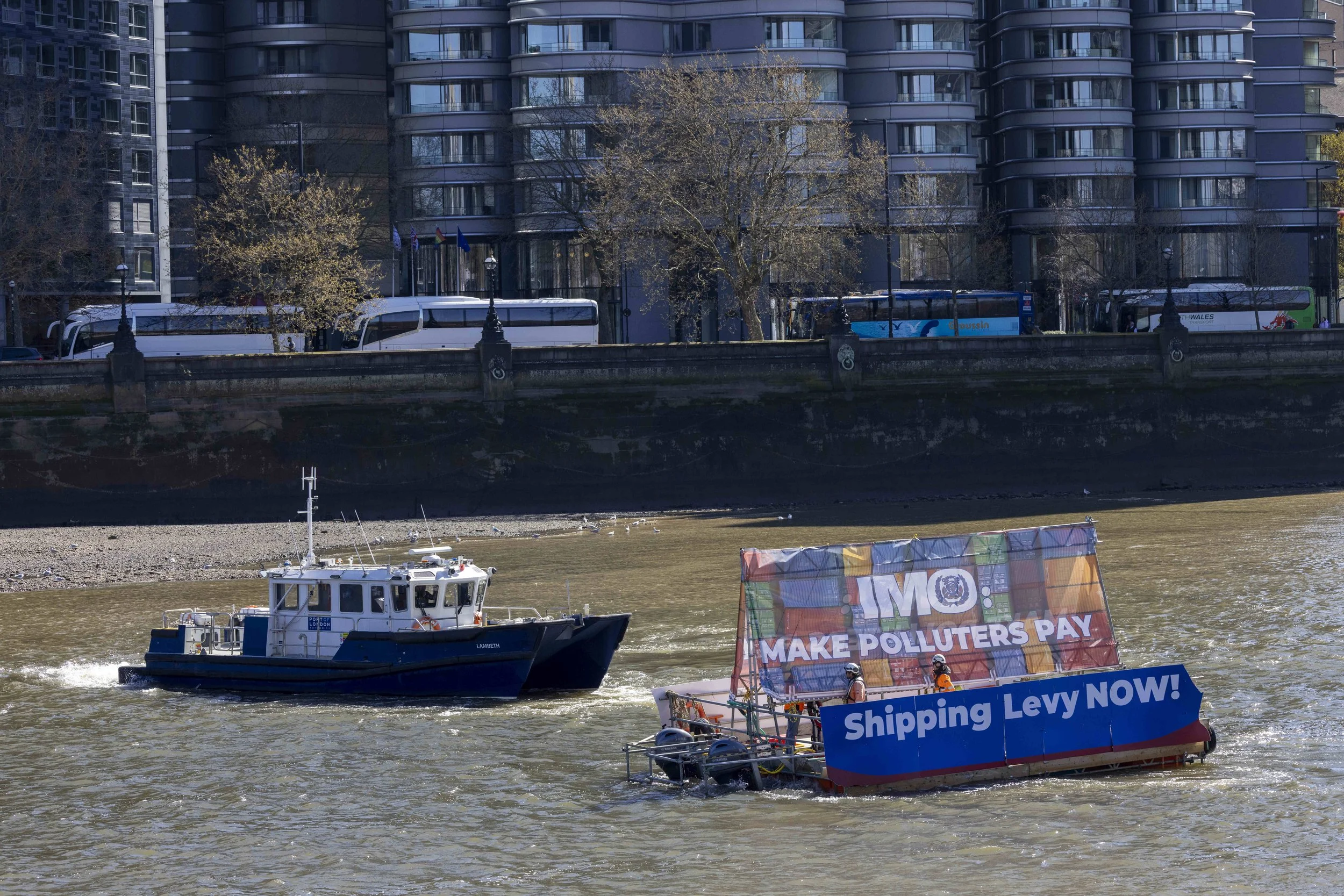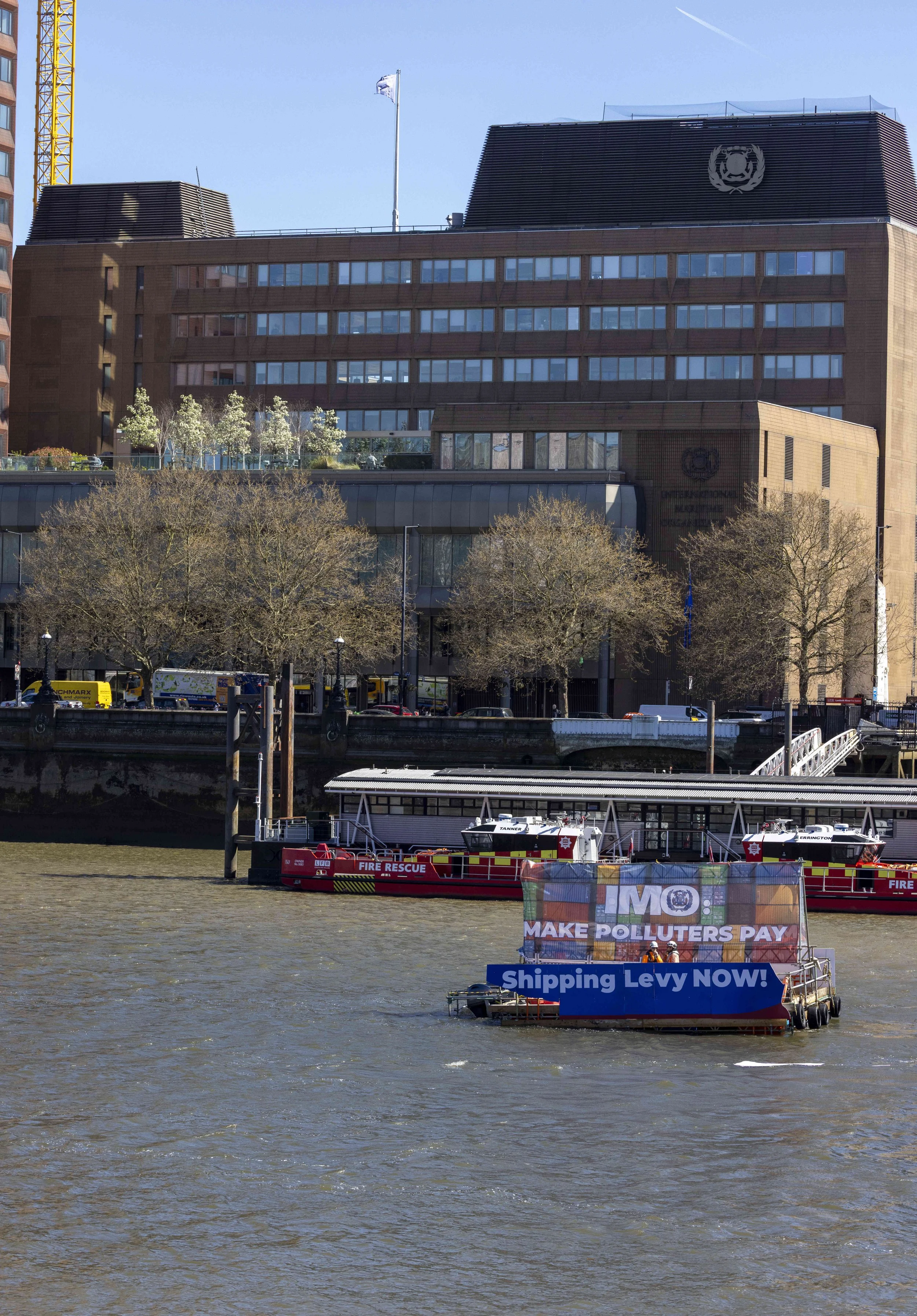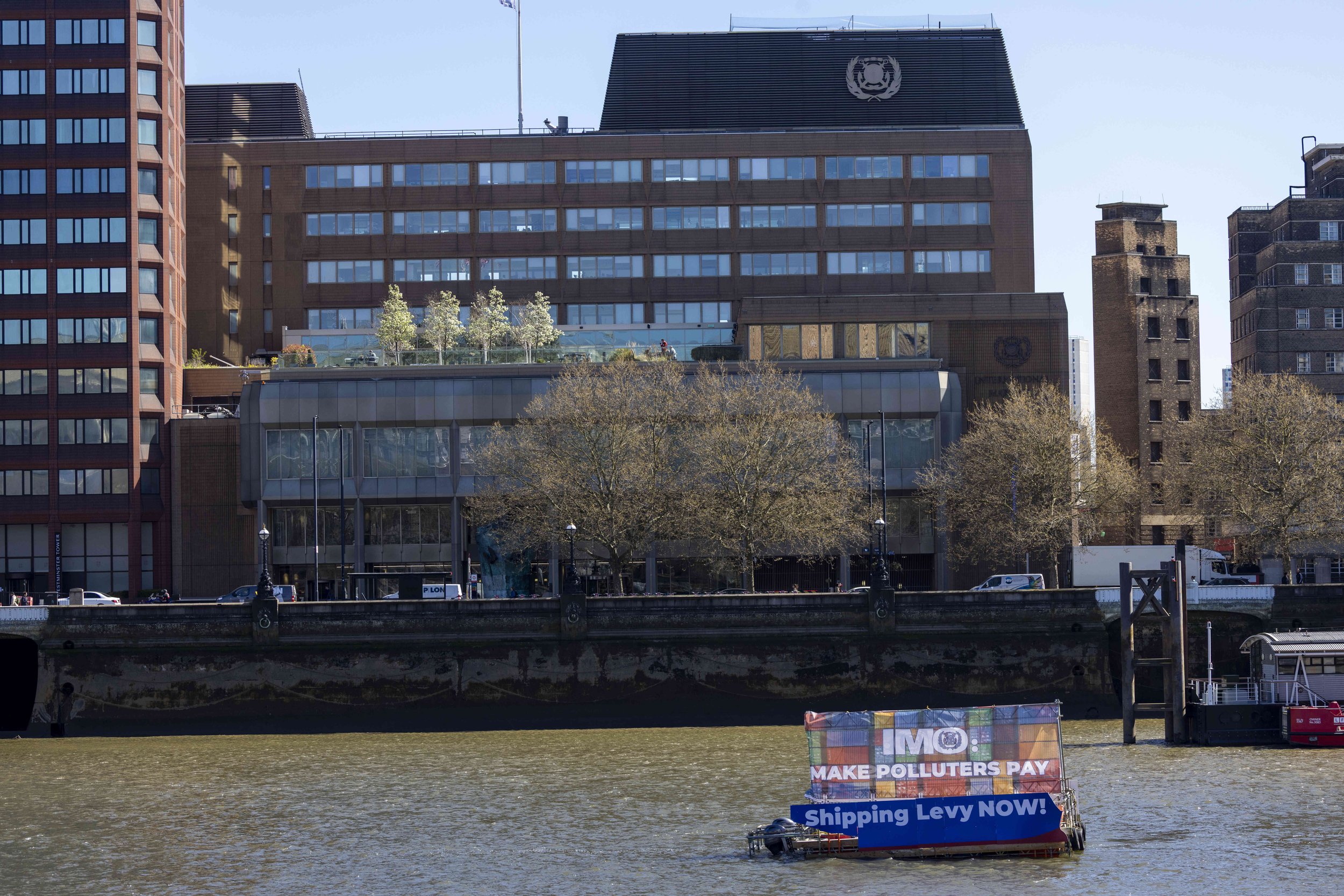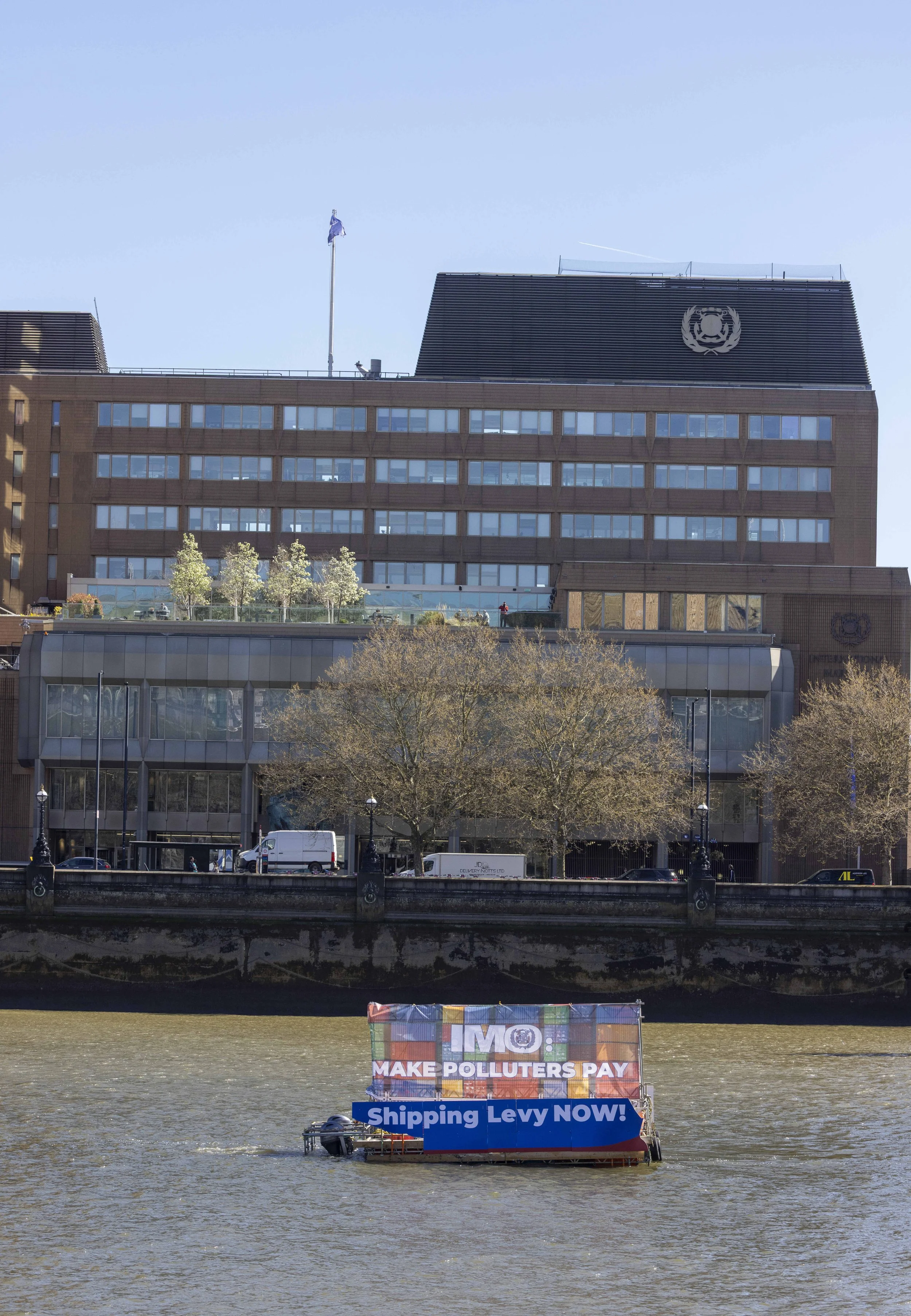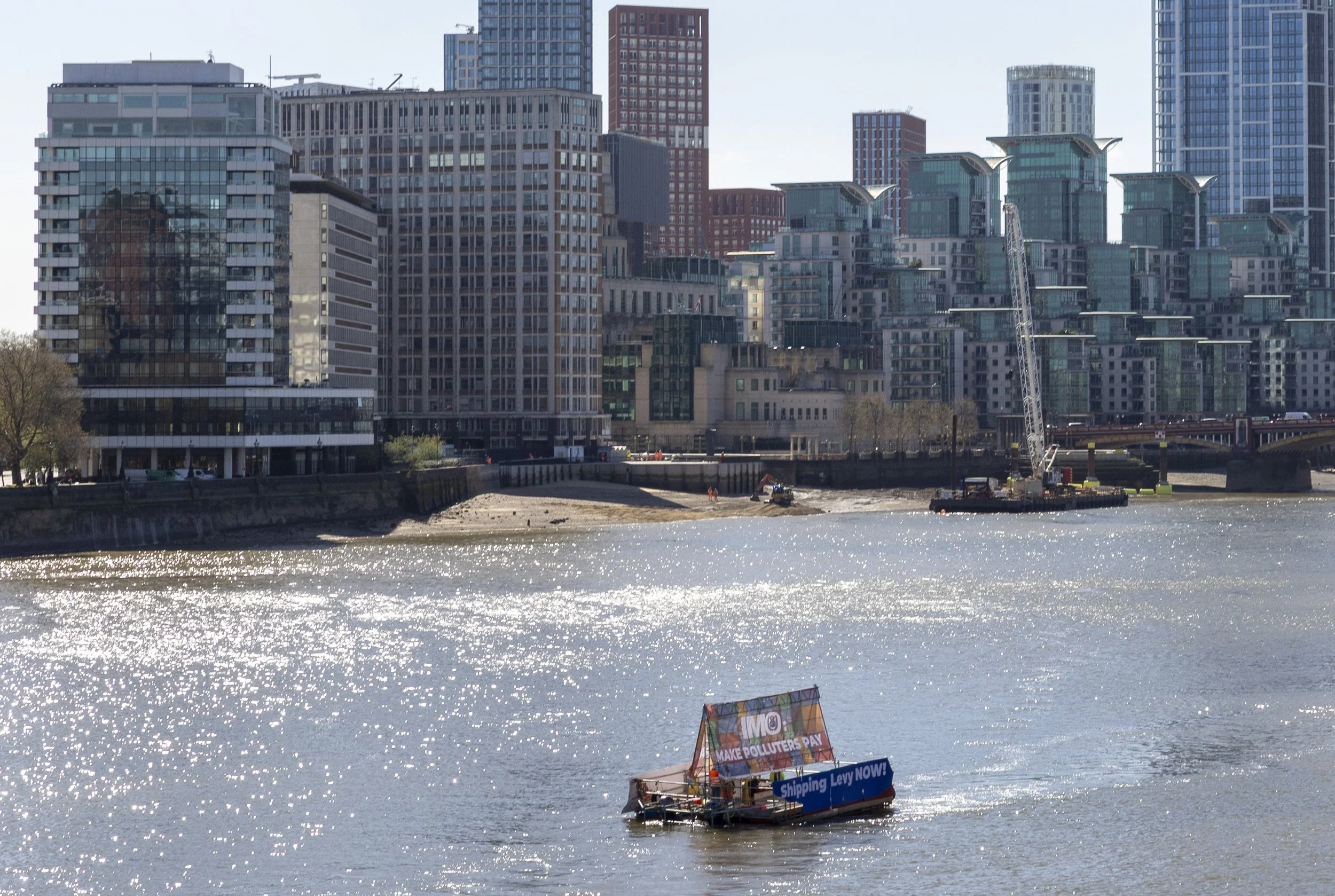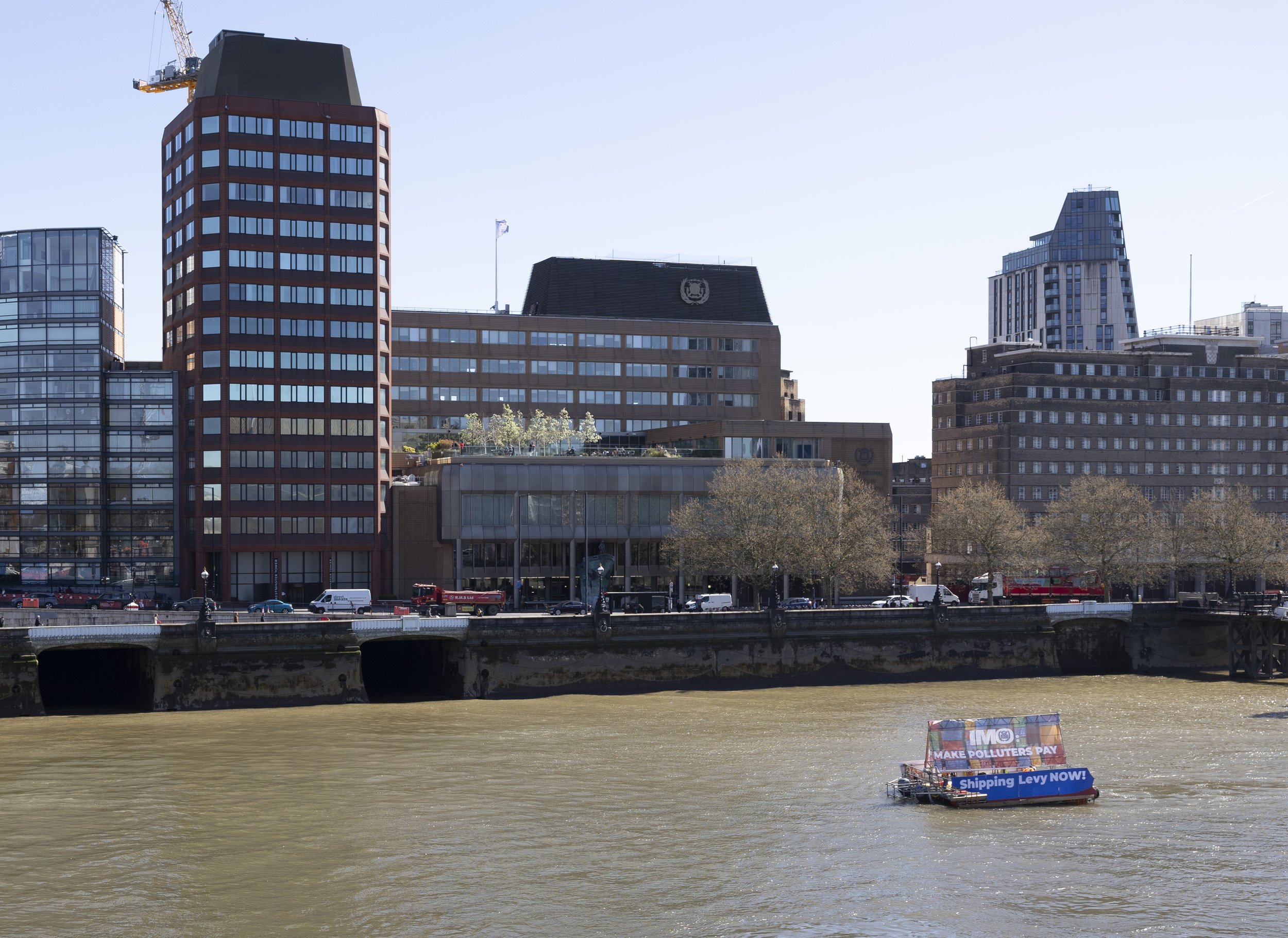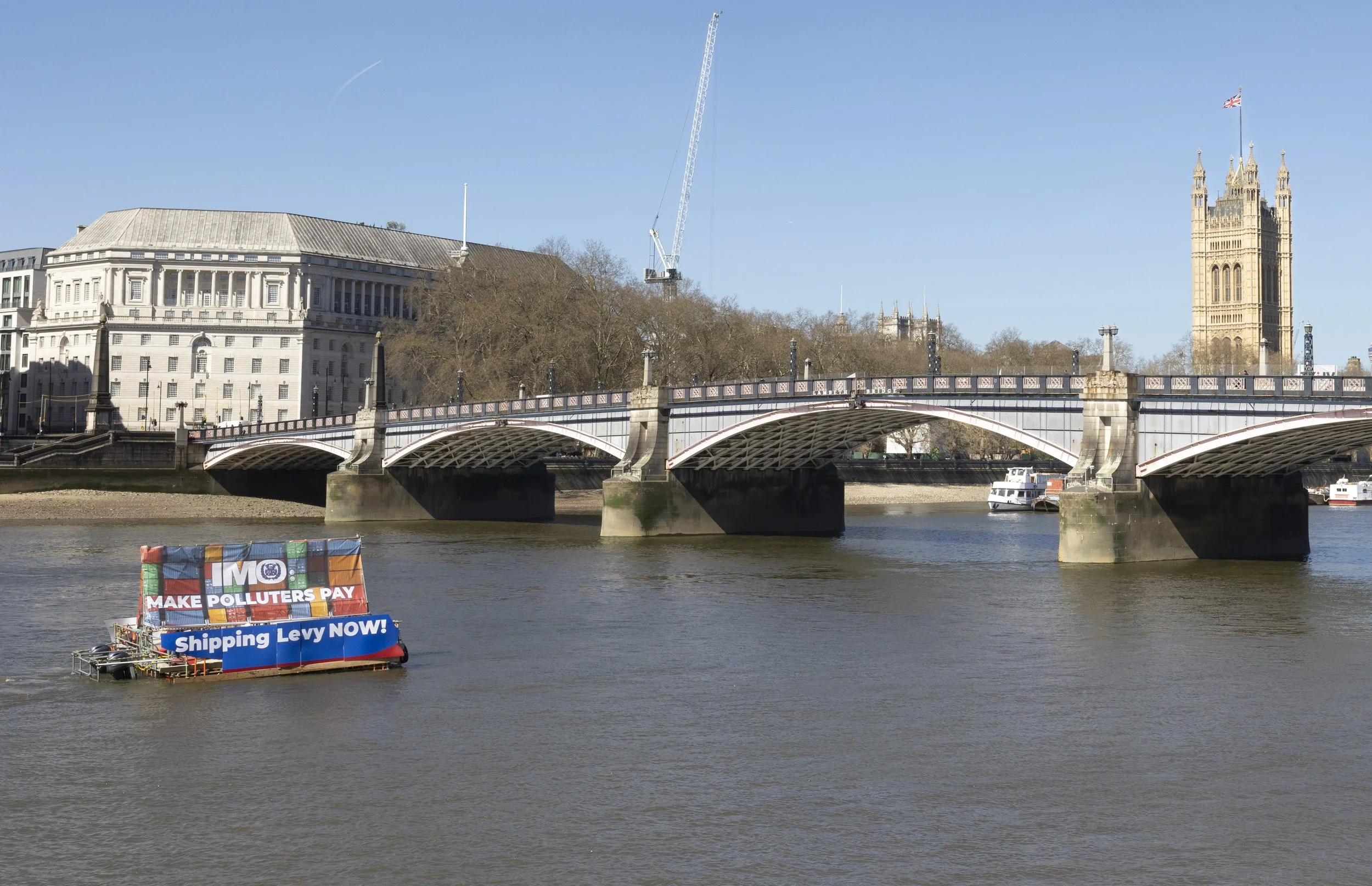Outside IMO Carbon Price Negotiations, Activists Take to Thames River on Container Ship Emblazoned With Call for Climate Action
As the International Maritime Organization debates a historic global shipping levy, climate activists flood the waters outside with an unmissable call for climate justice: “Make Polluters Pay!”
The International Maritime Organization is expected to release the first-ever global carbon price with a shipping levy in April–but only if our world leaders step up to the plate.
London, UK—Today, as delegates inside the International Maritime Organization (IMO) headquarters met to negotiate what is expected to be the world’s first global carbon price on shipping, climate activists made waves—literally. From a boat stationed on the Thames, activists unveiled enormous banners calling on negotiators to Make Polluters Pay, targeting one of the dirtiest and most underregulated and undertaxed industries on the planet.
Photos are free to use with attribution to Carlos Jasso for Glasgow Actions Team. More available here or on AFP's Factstory here
The spectacle comes as a last-ditch push for bold climate financing through a shipping levy—one that could raise billions annually for vulnerable countries on the frontlines of climate disaster if implemented equitably. The action visually dominated the riverfront, drawing global media attention to what may be the most consequential climate finance decision of 2025.
Abigael Kima, climate justice advocate, Kenya, stated: “The shipping levy is a matter of climate justice. We cannot let an industry responsible for 3% of global carbon emissions pollute freely while the rest of the world, especially in the Global South, is burning. Kenya has already experienced prolonged droughts, food insecurity and loss of livelihoods. We need the IMO to agree this April on a strong levy of at least $150/tonne of emissions to push the industry to adopt cleaner, zero-emission technologies. This is the only way to generate the funds for resilience and adaptation projects, particularly for countries like mine that are already feeling the brunt of climate disasters.”
Marcelo Rocha, researcher in Climate Racism, Brazil, stated: “I have witnessed the devastating impacts of climate change in regions such as the Brazilian coast and especially the Amazon. Climate change is real and is threatening entire communities in Brazil. My country, together with the other IMO Member States, has pledged to deliver an equitable transition in shipping, and a levy is the best way to do this. As host of COP30, Brazil must show its climate leadership and commitment to a cleaner future that leaves no one behind, and establishing a $150 levy on shipping at the IMO in April is a key part of this.”
Maritime shipping emits about one billion tons of carbon dioxide per year—almost three times as much as the yearly emissions from the United Kingdom as a whole. Yet this sector has escaped serious regulation for decades. Now, after years of delay, the IMO is poised to make a historic decision: whether to adopt a carbon levy on global shipping.
Olumide Idowu, Nigerian climate champion and campaigner, stated: “As we confront the pressing challenges facing our oceans, I call upon the IMO to agree on a $150 levy this April. A levy is a critical tool that will empower us to invest in sustainable practices and protect our marine environment. Additionally, I urge African leaders to lend their voices to this vital cause —your leadership and commitment are essential in driving collective action. This will ensure that our maritime policies reflect our responsibility to future generations and foster a healthier, more sustainable world.”
Nicole Morson, Intersectional environmentalist from Dominica, stated: “Like many small island nations, Dominica depends on the shipping industry for economic growth, including business and tourism. However, the increasing frequency of climate-related events, exacerbated by this very industry, has caused significant damage to the economy. The shipping levy is a positive step toward decarbonizing shipping and generating revenue for sustainable projects, especially for countries like mine, as well as the Pacific islands and LDCs. This levy needs to be approved, and it must be approved now! There is no more time for delays or excuses.”
Eldine Glees, Maritime Policy Advisor at the Micronesian Center for Sustainable Transport, stated: "We urgently need to hold polluters accountable for the climate crisis we are all in. The IMO is set to adopt binding rules that could set the wheels in motion, starting with global shipping. But the opportunity here is much bigger than this massive polluter: a carbon levy should primarily support the energy transition in the industry, but also boost the adaptation and reparation beyond the shipping industry. This is a billion-dollar opportunity to make the shipping industry pay its fair share for climate impacts across developing countries."
The IMO’s spring negotiations (March 31–April 1) are expected to set the terms for a final agreement on a carbon levy in the months to come. Over 60 countries from the Pacific, Caribbean, Europe, Africa and Asia, support the move—but opposition could water down or delay the proposal.
If approved, this levy could generate tens of billions annually, including an estimated $1.8 billion a year for Britain alone. Vulnerable nations, which did the least to cause the climate crisis but suffer its worst effects, would benefit the most if it’s treated as climate finance—not just reinvested in the shipping industry. Data show a levy is the cheapest way to drive the sector’s energy transition, and help to shield the poorest and most vulnerable economies from its impacts–provided that the revenues are invested strategically, with careful attention to ensuring it’s implemented equitably.
But fossil fuel exporters and major economies like Brazil and Argentina are speaking up against it, threatening to sink a deal that could set a precedent for taxing polluters to fund climate solutions.
“We can’t keep warming below 1.5 degrees Celsius while the shipping industry continues pumping 1 billion tons of pollution into the atmosphere every year,” said Andrew Nazdin, director of the Glasgow Actions Team. “A carbon levy on shipping is a crucial piece of the Paris puzzle.”
About the Glasgow Actions Team
Formed before the UN Climate Conference in 2021, the Glasgow Actions Team is committed to pushing the world's climate champions to go farther, calling out the blockers, and exposing the deniers. They are calling on the world's institutions to get in line with the Paris Climate Goals — to stop funding fossil fuels, invest in renewables, relieve debt, and become a more transparent and democratic institution. Lean more at www.glasgowactions.com
